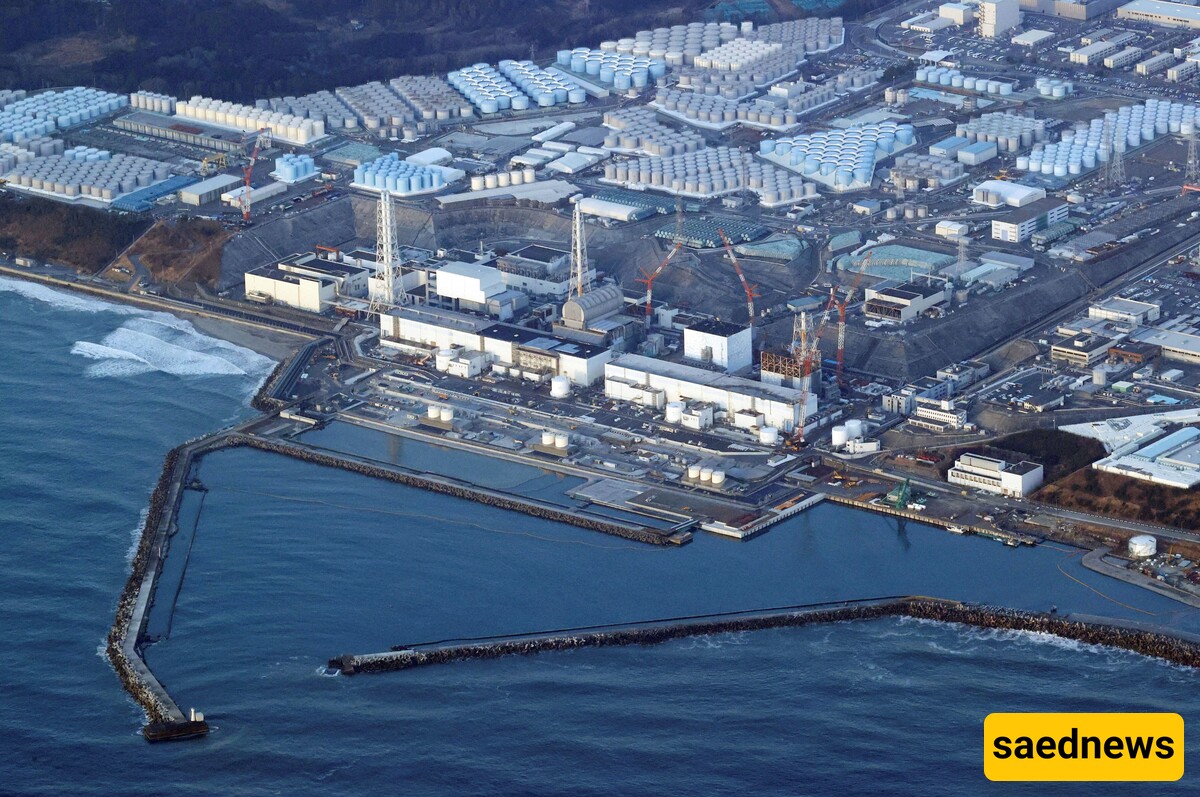SAEDNEWS: Iran can implement nuclear energy in a way that conforms with both national and international environmental goals, contributing to the global push for a low-carbon future.

According to SAEDNEWS, as the globe grapples with the urgent need to cut carbon emissions, nuclear energy is emerging as a critical answer for meeting low-carbon energy targets. Countries such as France and Japan have adopted various approaches to nuclear energy, each providing unique insights into the prospects and limitations of nuclear power. France is a global example of successful nuclear adoption, whereas Japan's experience post-Fukushima serves as a reminder of the risks involved. These lessons could influence Iran's nuclear ambitions, particularly as it pursues sustainable energy alternatives while addressing climate goals. This article investigates the triumphs and obstacles of nuclear energy adoption in France and Japan, and analyzes how Iran could apply these lessons to its own energy plan.
France's nuclear energy program is frequently held up as an example for other countries. In response to the oil crisis of the 1970s, France made the strategic decision to invest extensively in nuclear power. This approach not only targeted energy independence, but also produced an energy system with low carbon emissions. Today, nuclear power generates more than 70% of France's electricity, helping the country to retain one of the lowest per capita carbon footprints among industrialized nations. This commitment has established France as a leader in renewable energy and enhanced its influence in international climate negotiations, particularly COP conferences. The success of France's nuclear strategy is ascribed to variables such as government support, infrastructure investment, and a robust regulatory environment. The country has also developed a qualified workforce and technological knowledge, resulting in a strong nuclear industry that contributes to economic stability. This method has reduced France's reliance on fossil fuels, making it more resilient to global energy market swings. For Iran, this illustrates nuclear power's potential as a dependable and sustainable energy source that may supplement its oil and gas reserves, providing a method to diversify its energy portfolio while satisfying environmental goals.

In contrast, Japan's experience with nuclear energy demonstrates the complicated constraints associated with this strong energy source. Prior to 2011, Japan relied on nuclear power for almost 30% of its electricity, seeing it as a solution to limited natural resources and an important component of its carbon reduction plans. However, the Fukushima accident transformed Japan's nuclear environment overnight. The meltdown at the Fukushima Daiichi nuclear power plant was caused by an earthquake and tsunami, resulting in widespread radioactive contamination and a national disaster. In the aftermath, Japan shut down its nuclear reactors and increased reliance on imported fossil fuels, resulting in higher carbon emissions and energy prices. Despite the government's efforts to reassure the public, public opposition to nuclear power increased, posing considerable impediments to restarting reactors. International pressure, notably agreements made at the COP climate summits, has prompted Japan to reconsider nuclear energy's place in its future energy mix. The country has reactivated some reactors and invested in sophisticated technology like Small Modular Reactors (SMRs), but the public remains skeptical.

Iran's nuclear energy program has traditionally been focused on achieving energy independence and increasing indigenous scientific capability. With a fast growing population and increasing energy demands, nuclear energy provides Iran with a potential to reduce its dependency on fossil fuels while also lowering its carbon imprint. Both France and Japan provide vital lessons that Iran might use as it moves forward.
Iran may learn from France's approach to nuclear energy investment, focusing on infrastructure, skilled labor, and regulatory control to ensure a stable and safe nuclear program. Iran may demonstrate its commitment to international climate goals by promoting nuclear energy as a tool for both sustainability and energy security, potentially improving its diplomatic ties. Iran may learn from Japan about risk management, safety standards, and public involvement. Japan's experience highlights the importance of implementing strong safety measures and communicating openly with the general public. Implementing strong safety standards and preserving transparency can help Iran gain public trust, which is critical for the long-term sustainability of its nuclear energy program. Furthermore, investing in sophisticated technology such as SMRs could provide Iran with a safer, more flexible nuclear energy strategy that is consistent with its environmental and economic objectives.
As Iran evaluates its energy future, lessons from France and Japan offer a balanced perspective on the benefits and drawbacks of nuclear power. France's performance indicates nuclear energy's ability to produce consistent, low-carbon electricity, whereas Japan's experience emphasizes the significance of safety and public trust. Iran may learn from these lessons and establish a nuclear program that respects its climate pledges while also meeting domestic energy demands. In the context of global climate initiatives, such as COP climate conferences, Iran's nuclear program has the potential to position it as a regional leader in sustainable energy.

